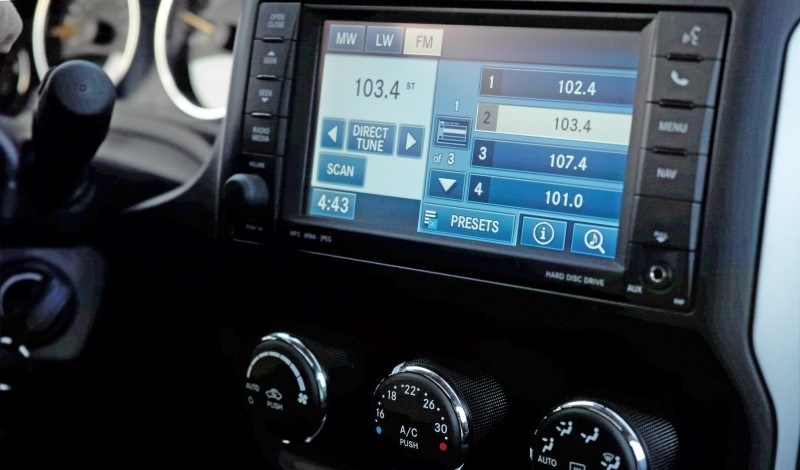
Scholars discuss the practice of payola in the music industry and reforms to promote fairness for artists.
Why are some songs played constantly on the radio? Some songs are promoted by sponsors who pay to play a particular song on the radio. This pay-for-play exchange, where artists or labels pay broadcasters for air time, is called “payola.”
Scholars disagree on the level of harm payola presents to the music industry. Some argue modern music is pulled by consumers more than conglomerates. Others, however, contend that pay-for-play decreases opportunities for unrepresented artists with limited resources.
Entertainment magazine Variety coined the term “payola” in 1938. The practice of payola, however, holds a much longer history than radio and digital streaming. Attempts to regulate the practice date back to the mid 1890s, when some music publishers agreed to paying singers to promote their songs. This early attempt to self-regulate payola failed because music publishers still delivered payments in secret. Ultimately, the practice proved to be a tenacious problem in the music industry.
Payola remains legal in the United States, with limitations. Under the Federal Communication Act and Federal Communications Commission rules, a radio station must disclose that it received payment for playing a song at the time the song is played. It must also disclose the payer’s identity. Despite these disclosure requirements, however, many loopholes and workarounds remain. The U.S. Congress and, more specifically, the U.S. House Oversight Committee investigated pure bribery in 1959. Remaining loopholes include payments to digital platforms rather than the radio.
Digital platforms continue to reshape the music industry, complicating modern payola. For example, streaming services such as Spotify may include songs in users’ “suggested” playlists in exchange for compensation, raising payola concerns. Large media companies today, such as the digital streaming platform SiriusXM, also own most major radio stations, which has resulted in settlements paid by companies with digital streaming platforms such as Universal Music Group and Sony for payola practice.
Music industry observers have also noted concerns about payola’s potential to exclude independent artists who cannot pay to promote their music, given that radio stations have a greater incentive to play artists who pay for plays. To protect artists against payola, Senator Alex Padilla (D-Calif.) introduced the American Music Fairness Act (AMFA) in 2023. The bill remains unsigned but would require radio stations to pay a performance royalty when the stations play artists’ songs on air. While well-funded artists could still pay for air time under the bill, the AMFA would provide checks on radio stations’ use of payola such as through the Copyright Royalty Board’s determination of certain royalty rates and requirements.
Some scholars such as Adam Rennhoff of Middle Tennessee State University contend that banning payola may increase smaller record labels’ access to radio stations. At the same time, however, effective payola bans can lead to reduced variety in music played and an overall reduction in total record sales for all artists. Achieving equity for artists by banning illegal payola and sustaining the multibillion dollar music industry with product variety prove connected based on empirical data. As payola bans increase access to radio stations for smaller labels, music variety and record sales may fall, proving difficulty in simultaneously achieving equity and supporting the overall industry.
In this week’s Saturday Seminar, scholars examine the current state of payola in the music industry and explore regulatory approaches to ending the practice.
- In a UC Irvine Law Review article, Duke Law professor Christopher Buccafusco and Georgetown Law professor Kristelia García explore the current state of payola in the music streaming industry. Unlike traditional pay-for-play schemes where artists pay radio stations to play songs, modern payola involves payments to streaming platforms, third-party playlisters, and TikTok and other social media influencers to promote music. Buccafusco and Garcia argue that although streaming payola through curated playlists rather than the radio can democratize access for independent artists, it also raises issues, especially with ‘reverse payola,’ where platforms demand lower royalty rates for promotion. The authors suggest cautious yet creative regulation—such as a low cost lottery enabling artists to pay for streaming—to balance payola’s benefits and harms.
- Where is payola headed in the music streaming age? Practitioner Kasi Wautlet examines the evolving landscape of payola in an article in New York University Annual Survey of American Law. Wautlet finds that playlists serve as influential endorsements, similar to traditional radio play, and thus require continued regulation to prevent unfair practices. Payola laws need updates to address digital platforms’ unique challenges and opportunities, and to ensure a more equitable music industry, Wautlet emphasizes. In her view, regulatory measures must balance innovation and fairness to protect artists.
- In a comment in the University of Maryland Carey School of Law’s Journal of Business and Technology Law, recent University of Maryland Carey School of Law graduate Christine Smith Burton discusses how current fraud prevention methods are insufficient to address payola. Burton suggests that Congress enact a statute to prevent fraud in the music industry but emphasizes this may prove ineffective as the existent anti-payola statute has failed to solve the problem. Burton ultimately argues that Congress should establish the Copyright Office as an independent federal agency and empower it to investigate and impose regulations on the music industry to prevent streaming fraud.
- Lawsuits against Sirius XM highlight music artists’ fears of being unfairly compensated for their work, practitioner Mark Edward Blankenship, Jr. explains in a Notre Dame Law School Journal of Legislation article. Blankenship states that current copyright legislation does not require AM, FM, or other terrestrial radio stations to pay royalties to artists when broadcasting their copyrighted music. Blankenship argues that the AMFA—a bill with bipartisan support—would remedy this disparity if it became law. He contends that passing the AMFA would benefit artists by honoring intellectual property rights and promoting equal compensation. To Blankenship, the AMFA is an essential step toward promoting greater respect for musicians and their art.
- In a note in the Journal of International Business and Law, Yonatan Bertel of Hofstra University Maurice A. Deane School of Law advocates for Congress to pass the AMFA and to nationalize United States copyright law. Bertel argues that current copyright laws create inequality between performance rights for songwriters and performers, and the AMFA would address this by requiring radio stations to compensate artists and producers when using their sound recording. Bertel points out that compensation equality is essential following the detrimental impact the COVID-19 pandemic had on the music industry. Bertel explains that since COVID-19, artists have looked for alternative streams of revenue. Bertel argues that the AMFA would provide revenues in the form of radio royalties.
- In a student note in the University of Miami Law Review, practitioner Michael Newell discusses how the relatively high costs of bringing copyright claims disproportionately affect Black Americans’ intellectual property rights because “copyright laws afford inadequate copyright protection to musicians of color and increase their inequality among the rest of American society.” In 2020, Congress enacted the Copyright Alternative in Small-Claims Enforcement Act to address this disparity, which Newell considers a step in the right direction. Newell argues, however, that the Copyright Alternative in Small-Claims Enforcement Act does not go far enough in addressing the high costs of copyright litigation, and it will not remedy unfair contract practices that allow labels to take advantage of musicians.



